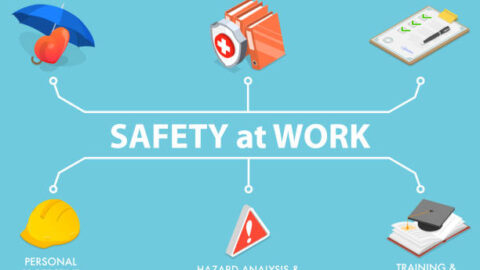Exploring Various Careers in Mental Health Care and Their Educational Prerequisites
Over the last several decades, more and more people have come to understand the immense importance of mental health and, as an extension, the importance of robust mental health resources. As a result of this change in attitude, there are now more mental health care professional paths than there ever have been before.
Table of Contents
If you’ve thought about pursuing a career as a mental health professional, it’s important to have a good grasp of the many options available to you. In addition, it’s crucial to understand the educational commitments for each of these different career paths.
Here’s an exploration of various careers in mental health care and their educational prerequisites.
Psychiatrist

Psychiatrists are some of the most well-known mental health professionals working today. Essentially, these professionals are doctors who specialize in mental health care. Their duties can include assessing and diagnosing patients, prescribing medications, and educating patients about mental health.
When compared to other professional mental health care roles, becoming a psychiatrist is one of the most difficult. The reason for this is that psychiatrists are medical doctors and, as a result, must engage in the same amount of schooling as all doctors.
Typically, a psychiatrist’s educational path will begin with a bachelor’s degree. This can be in psychology, premed, or any other closely related field. Next, psychiatrists will have to attend medical school where they will specialize in psychiatry. Finally, aspiring psychiatrists will have to do a residency in which they hone their skills, learn from other experienced professionals, and experience what it’s like to work with patients on a regular basis.
Though it can take a long time to become qualified as a psychiatrist, this can be an incredibly rewarding career path for those passionate about mental health and helping others. In essence, psychiatrists have the most autonomy to assess and treat patients out of all mental health professionals.
Psychiatric Nurse Practitioner
While many people are aware of nurse practitioners and the specialized role they play in healthcare, far fewer are aware of the fact that many nurse practitioners specialize in psychiatry. However, though psychiatric nurse practitioners and psychiatrists engage in some of the same duties, they also differ in some key ways.
While psychiatric nurse practitioners enjoy some level of autonomy in their practices, it’s not as all-encompassing as that of psychiatrists. The reason for this is that different states have different laws that can sometimes limit the amount of autonomy that nurse practitioners have and the duties they can perform.
Some common duties of psychiatric nurse practitioners include providing emergency mental health care, monitoring patient progress, and sometimes prescribing medication if they’re working in a state that allows them to. These professionals can work in a wide variety of settings ranging from mental health clinics to prisons.
To become a nurse practitioner, one will have to begin their educational journey with a Bachelor of nursing science degree. In addition, one will have to gain several years of experience as a registered nurse before pursuing an advanced degree in nursing. Typically, aspiring psychiatric nurse practitioners will obtain a Doctor of Nursing practice degree with a focus on psychiatric care.
For those who started their career in nursing or pursued nursing as a second career, becoming a psychiatric nurse practitioner provides an amazing opportunity to get involved in mental health care.
Mental Health Counselor
Mental health counselors are mental health professionals who help their patients and clients work through their ailments in a wide variety of beneficial ways. Put simply, these professionals are trained to assess and treat their clients for different mental health struggles they may be battling.
Oftentimes, mental health counselors draw upon methods from psychotherapy to help patients face and work through their mental health ailments. These ailments can include anxiety, depression, relationship problems, family issues, and substance abuse.
Typically, mental health counselors aim to help their patients uncover the root causes of their mental health illnesses. After doing so, they can help patients remedy their problems and achieve a greater sense of wellness in their everyday lives.
To become a mental health counselor, the journey begins with a bachelor’s degree. Typically, this will be in psychology or a closely related subject. Next, aspiring mental health counselors will need a master’s degree in mental health counseling. This specialized advanced degree will help individuals gain a deeper understanding of how to interact with patients and clients and help them achieve optimal mental health outcomes.
After these educational prerequisites are out of the way, one will have to pass their licensing exam and engage in a supervised clinical residency. When both of these steps are completed, mental health counselors will have to apply to become licensed in their state so they can legally start practicing.
Though it’s not strictly required, many aspiring mental health counselors also obtain additional certifications to bolster their qualifications. As a result, they’re seen as more capable candidates by employers and can have an easier time finding employment.
There are Many Career Options in Mental Health
Becoming a mental health professional can be extremely fulfilling for those who choose this path. From helping patients pinpoint their mental health issues to giving them the tools to heal, mental health professionals have countless opportunities to change the lives of those they treat. Those interested in working in this field have many career paths to choose from and can surely find the perfect job that fits their unique professional desires.
Irwin Michael Reston is an expert who has more than 30 years of experience in optimizing businesses, inspiring individuals and improving human resources departments. He established the BlueLight Consulting Limited to provide learning and training service worldwide.











